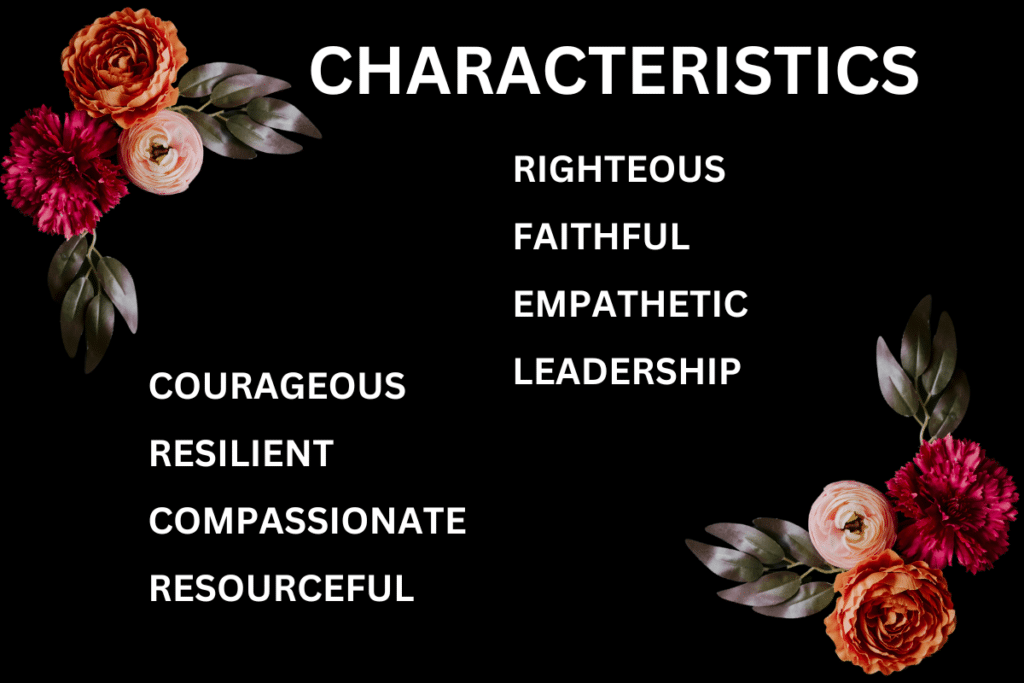SYNERGETIC SHIPHRAH AND PUAH IN THE BIBLE
Shiphrah and Puah were the Hebrew midwives who defied Pharaoh’s order to kill all newborn Israelite boys. Despite the risk to their own lives, they refused to participate in the genocide and instead allowed the babies to live. Their courageous act of civil disobedience saved countless lives and set the stage for the Exodus story.
Shiphrah and Puah’s unwavering faith in God and commitment to preserving life made them heroic figures who stood up for what was right in the face of oppression. Their story serves as an inspiring example of moral courage and the power of individuals to make a difference, even in the darkest of circumstances.

Background and Context
In the oppressive context of ancient Egypt, where the Israelites were enslaved and subjected to Pharaoh’s cruelty, the story of Shiphrah and Puah stands as a testament to moral courage and resistance against tyranny. These two Hebrew midwives were ordered by Pharaoh to kill all newborn Israelite boys, but they refused to comply, fearing God rather than the king. When challenged, they cleverly deceived Pharaoh, claiming the Hebrew women gave birth too quickly for the midwives to arrive in time.
As a result, God “dealt well with the midwives” and “made them houses”, likely referring to the establishment of their families. Shiphrah and Puah’s defiance of Pharaoh’s genocidal decree saved countless lives and paved the way for the Exodus story, with one of the saved babies growing up to become the great liberator, Moses. Their courageous act stands as an inspiring example of moral integrity and the power of individuals to resist oppression, even in the face of grave personal risk.
Who Were Shiphrah and Puah?
Shiphrah and Puah, the Hebrew midwives whose names mean “beautiful” and “splendid”, demonstrated remarkable courage and moral integrity in the face of Pharaoh’s genocidal decree. When ordered to kill all newborn Israelite boys, they refused to comply, fearing God rather than the king. They cleverly deceived Pharaoh, claiming the Hebrew women gave birth too quickly for the midwives to arrive in time.
As a result, God “dealt well with the midwives” and “made them houses”, likely referring to the establishment of their families. Shiphrah and Puah’s defiance of Pharaoh’s orders saved countless lives and paved the way for the Exodus story, with one of the saved babies growing up to become the great liberator, Moses.
Courageous Acts of Shiphrah and Puah
Shiphrah and Puah, the Hebrew midwives, defied Pharaoh’s order to kill Hebrew male infants at birth, choosing instead to protect the newborns and risking their own lives in the process. Their courageous act of civil disobedience showcased unparalleled bravery and compassion, highlighting their unwavering commitment to preserving life and standing up against injustice.
By prioritizing the well-being of the innocent over the tyrannical demands of the ruler, Shiphrah and Puah exemplified the power of moral integrity and the profound impact individuals can have in resisting oppression and protecting the vulnerable.

Divine Blessings
God honored Shiphrah and Puah for their courageous defiance of Pharaoh’s unjust decree to kill Hebrew newborn boys. Their fear and reverence for God outweighed their fear of the powerful ruler, enabling them to make the morally right choice to preserve life. As a result, God “dealt well with the midwives” and “made them houses”, likely referring to the establishment of their families.
Their unwavering faith and commitment to their calling as midwives, even in the face of grave personal risk, exemplified the strength and wisdom that comes from prioritizing obedience to God over obedience to unjust human authority. Shiphrah and Puah’s actions had a profound impact, as they likely played a crucial role in saving the life of Moses, the future liberator of the Israelites.
Lessons from Shiphrah and Puah in the Bible
The story of Shiphrah and Puah in the Bible offers several valuable lessons that we can learn from and apply to our own lives:
- Standing up for what is right: Shiphrah and Puah’s refusal to obey Pharaoh’s orders teaches us the importance of standing up for what is morally right, even in the face of adversity or personal risk. Their courageous defiance serves as a powerful reminder that we should never compromise our principles for the sake of convenience or fear.
- Protecting the vulnerable: Shiphrah and Puah’s commitment to protecting the lives of innocent infants demonstrates the importance of advocating for and defending the rights of the vulnerable in society. Their actions remind us of our duty to stand up for those who cannot defend themselves, regardless of their background or circumstances.
- Resisting injustice: Shiphrah and Puah’s resistance against Pharaoh’s unjust decree highlights the need to resist injustice and oppression wherever we encounter it. Their story challenges us to speak out against systems of oppression and work towards creating a more just and equitable society for all.
- Using our resources wisely: Shiphrah and Puah’s resourcefulness in devising a plan to save the Hebrew infants teaches us the importance of using our talents and resources wisely to effect positive change. Their example encourages us to think creatively and strategically in addressing challenges and finding solutions to complex problems.
- Remaining faithful in difficult times: Despite the risks they faced, Shiphrah and Puah remained faithful to their beliefs and convictions. Their unwavering faith in God’s righteousness serves as an inspiration for us to maintain our faith and trust in God, even during times of uncertainty or adversity.
- Empathy and compassion: Shiphrah and Puah’s empathy towards the Hebrew mothers and infants under their care reminds us of the importance of empathy and compassion towards others. Their actions teach us to empathize with the suffering of others and to act with kindness and compassion towards those in need.
- Leadership and initiative: Shiphrah and Puah exhibited qualities of leadership by taking initiative and making difficult decisions in challenging circumstances. Their example encourages us to step up as leaders in our own communities and to take action to bring about positive change.
Impact on History and Faith
Shiphrah and Puah’s courageous defiance of Pharaoh’s genocidal decree against Hebrew newborn boys was a pivotal moment that set the stage for the Exodus story and the eventual liberation of the Israelites from Egyptian bondage. By risking their own lives to save the babies, these two midwives demonstrated unwavering faith in God and a commitment to preserving life that directly contributed to the survival of Moses, the future liberator of the Hebrew people.
Their act of civil disobedience not only saved countless lives but also paved the way for the Exodus narrative, a seminal event in the Judeo-Christian religious tradition. Shiphrah and Puah’s heroic actions left an indelible mark on history, showcasing the power of moral courage in the face of oppression.
Reflections in Modern Context
The story of Shiphrah and Puah continues to resonate in contemporary times, serving as a powerful example of the importance of speaking out against oppression and defending the rights of the marginalized. These two midwives, through their courageous defiance of Pharaoh’s unjust decree, demonstrated the moral integrity and ethical leadership needed to protect the vulnerable, even in the face of grave personal risk.
Their legacy underscores the profound impact that individuals can have when they prioritize their moral convictions over the demands of unjust authority. Shiphrah and Puah’s story inspires us to emulate their bravery and commitment to justice, reminding us that we all have a responsibility to stand up for what is right, even in the most challenging of circumstances.
Appreciation and Commemoration
Shiphrah and Puah are revered in Jewish tradition as heroines of faith, celebrated for their unwavering courage and compassion in defying Pharaoh’s orders to protect innocent lives. Their memory is honored in religious ceremonies and rituals, symbolizing the enduring power of righteousness and the profound impact individuals can have in standing up against oppression.
Their legacy serves as a timeless reminder of the importance of moral integrity and the strength of women in the face of adversity, inspiring generations to emulate their example of selfless dedication to justice and the protection of the vulnerable.
Legacy in Art and Literature
The story of Shiphrah and Puah has been immortalized in various artistic and literary works, symbolizing the triumph of good over evil and the resilience of the human spirit in adversity. Their unwavering courage and faith-driven actions, depicted in these works, serve as a powerful reminder of the enduring impact of moral integrity and the strength of women in the face of oppression.
Through art and literature, their narrative continues to inspire audiences, highlighting the timeless themes of justice, compassion, and the indomitable spirit of individuals who stand up against tyranny to protect the vulnerable.
Resonance in Social Justice Movements
Shiphrah and Puah exemplify unwavering courage and a deep reverence for God, guiding them to defy oppressive orders and protect life. Their legacy inspires modern social justice movements by showcasing the power of standing against injustice, prioritizing human dignity over personal safety, and embodying a profound fear of God that leads to righteous action. Their story resonates as a beacon of hope, urging individuals to uphold principles of justice, compassion, and unwavering faith in the pursuit of a fairer and more equitable.
Characteristics of Shiphrah and Puah in the Bible

Shiphrah and Puah, as portrayed in the Bible, exhibit several notable characteristics that have made them enduring figures of admiration and inspiration:
- Courageous: Shiphrah and Puah demonstrated immense bravery in defying Pharaoh’s orders to kill Hebrew male infants. Despite the risks to their own safety, they chose to stand up for what they believed was right.
- Resilient: In the face of adversity, Shiphrah and Puah remained steadfast and resolute. They did not waver in their commitment to protecting the vulnerable and ensuring the survival of innocent lives.
- Compassionate: As midwives, Shiphrah and Puah possessed a deep sense of compassion for the mothers and infants under their care. Their actions were driven by a genuine concern for the well-being of others.
- Resourceful: Faced with the daunting task of outsmarting Pharaoh’s decree, Shiphrah and Puah demonstrated remarkable resourcefulness. They devised a clever plan to deceive Pharaoh’s agents and save the lives of the Hebrew infants.
- Righteous: Shiphrah and Puah’s actions were guided by a strong sense of moral integrity. They refused to compromise their principles or betray their conscience, even in the face of immense pressure.
- Faithful: Despite the uncertainty and danger surrounding them, Shiphrah and Puah remained faithful to their beliefs and convictions. Their unwavering faith in God’s righteousness sustained them through difficult times.
- Empathetic: Shiphrah and Puah showed empathy towards the plight of the Hebrew people, particularly the mothers who feared for the lives of their newborn sons. Their empathy drove them to take action and intervene on behalf of the oppressed.
- Leadership: Shiphrah and Puah exhibited qualities of leadership by taking initiative and making difficult decisions in challenging circumstances. Their example inspired others to follow suit and stand up against injustice.
Shiphrah and Puah: Role Models
Shiphrah and Puah’s courageous defiance of Pharaoh’s unjust decree exemplifies moral fortitude and ethical leadership in the face of oppression. Their unwavering reverence for God empowered them to prioritize human dignity over personal safety, inspiring modern social justice movements to uphold principles of justice, compassion, and unwavering faith.
Their story serves as a beacon, urging individuals to stand against injustice and embody a profound fear of God that leads to righteous action, even when it comes at great personal cost. Shiphrah and Puah’s legacy reminds us that true leadership requires the moral courage to do what is right, regardless of the consequences.
Conclusion
The story of Shiphrah and Puah is not merely a historical account but a timeless testament to the triumph of good over evil and the enduring power of righteousness. Their courage, faith, and moral integrity continue to inspire generations, reminding us of the profound impact that individuals can have when they stand up for what is right.
Reference
Unique FAQ’s
- Why were Shiphrah and Puah important in biblical history?
- Shiphrah and Puah defied Pharaoh’s orders to kill Hebrew male infants, thus preserving the lineage of the Israelites and paving the way for their eventual liberation.
- What virtues did Shiphrah and Puah exemplify?
- Shiphrah and Puah demonstrated courage, compassion, and unwavering faith in the face of oppression and injustice.
- How did Shiphrah and Puah influence future generations?
- Their story serves as a timeless inspiration for individuals and communities striving for justice, equality, and moral integrity.
- Are there any commemorations or tributes dedicated to Shiphrah and Puah?
- In Jewish tradition, Shiphrah and Puah are honored as heroines of faith, commemorated during religious ceremonies and rituals.
- What lessons can we learn from the story of Shiphrah and Puah?
- The narrative of Shiphrah and Puah teaches us the importance of standing up against oppression, defending the rights of the marginalized, and maintaining unwav


1 thought on “14. SYNERGETIC SHIPHRAH AND PUAH IN THE BIBLE”